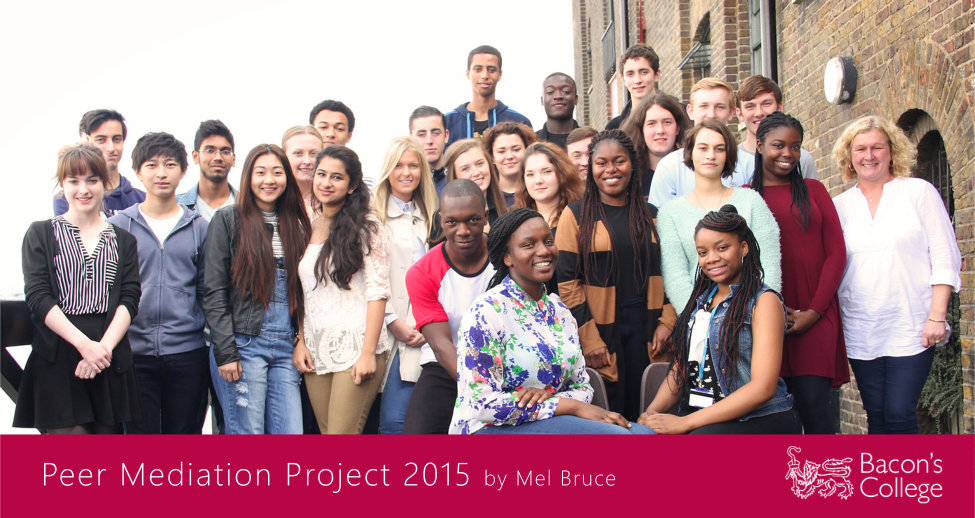Call for government rethink on punitive education
Quakers in Britain are challenging government plans which could emphasise punishments in Britain's classrooms. Instead, Quakers urge a restorative approach, saying that head teachers cannot simply force peace on schools; they need to equip children and young people to be peacemakers.

In a letter to Gavin Williamson, Secretary of State for Education, Quakers in Britain have written, “Quakers have worked in Scotland to see the defence of 'reasonable chastisement' removed from law, and some parts of the UK are making bold moves to lessen violence in children's lives. We would welcome the same children's rights focused approach here."
The full text of the letter follows:
Dear Gavin Williamson
I am writing this open letter on behalf of the Religious Society of Friends (Quakers). I will take this chance to welcome you as Education Secretary. We were interested to learn of prospective announcements on education policy, reported in The Guardian (“Leaked documents reveal Tories' dramatic plans for schools" 27 August). We welcome urgent action to reverse the underfunding of schools in England and hope that this will be used to effectively support teachers and young people alike.
[QUOTE-START]
Dependence on sanctions such as detention, physical restraint and expulsion at best treats the symptom rather than the causes of instability in children and young people's lives.
- Juliet Prager, Deputy Recording Clerk
[QUOTE-END]
We also share your concern for young people's safety. We are however alarmed by the government's emphasis on punishments. We recommend an urgent re-evaluation of this and support for restorative approaches in schools.
Dependence on sanctions such as detention, physical restraint and expulsion at best treats the symptom rather than the causes of instability in children and young people's lives. Indeed, we fear the effect will be more marginalisation for many young people. Like the Children's Commissioner for England[1], we are already concerned by the harm caused by mass exclusions.
Nick Appleby of The Learning Institute agrees. He said “That exclusion from school is likely to make a young person's life chances worse is not a matter for debate."
As Hilary Cremin of the Cambridge Peace Education Research group commented, “Schools that appear to do well with zero tolerance policies and a proliferation of rules and punishments thrive only when they offset the expensive-to-educate children with SEN and mental health difficulties onto other people – onto their families and communities, and onto other schools."
You will note that the Sustainable Development Goals commit the United Kingdom to ensure all learners acquire the knowledge and skills to promote a 'culture of peace and nonviolence'[2]. Like any skills, these develop through experience and practice, but reliance solely on reward and punishment provides no space for this. Consequently, improving behaviour must mean providing young people with the skills and systems for resolving conflict: a restorative approach.
By contrast, a 'zero tolerance' approach promises peaceful schools, but does not strengthen relationships among staff and young people[3]. Signalling that physical restraint is appropriate but ignoring the skills needed for conflict resolution does not model responsible behaviour. The effect is to teach an implicit lesson that 'might is right'.
“These responses seem to place the blame for poor behaviour solely on children and do not take into account knowledge and experience of trauma and adverse childhood experiences," said Anna Gregory, restorative Coordinator at Peacemakers[4], a Quaker charity that works in schools to help people deal peacefully and creatively with the inevitable conflicts. “Additionally, there is the reality that adults can often escalate conflicts. Giving power to adults to react in a hostile way to unexplored behaviour is deeply worrying."
Quakers have worked in Scotland to see the defence of 'reasonable chastisement' removed from law, and some parts of the UK are making bold moves to lessen violence in children's lives. We would welcome the same children's rights focused approach here.
Quakers know from experience that education for peace can help people transform conflict. Schools are safer places for learning where they take a whole school restorative approach. The government is understandably anxious about behaviour which impacts the wellbeing of pupils and teachers, but head teachers cannot simply force peace on schools; they need to equip children and young people to be peacemakers.
“Not all schools can (or want to) avoid educating troubled and troublesome young people," says Cremin. “Some risk closure and reduced inspection results because they believe that all children can be included. They see mistakes in behaviour as the beginning of the education process ─like mistakes in Maths─ not the end of it."
We urge the government, in reviewing this policy, to take these points into account. Please identify ways to support schools to deliver restorative practice and consider the harm caused by overreliance on punishments.
Work worldwide and in UK has repeatedly shown the value of a restorative approach to conflict and relationships in a school. A submission from Quakers in Britain to OFSTED collates some sources on the topic. There is a wealth of experience and expertise in civil society that I hope you will draw on.
Being tough on behaviour may be an easy story to tell, but young people are entitled to better. A system based solely on sanction and reward is bad for learning, wellbeing and children's rights.
We hope you will take our recommendation to review this policy under advisement. Please also inform us what your policy is on supporting restorative approaches in schools, and what steps we can expect government to take in this area.
Many thanks,
Juliet Prager, Deputy Recording Clerk, Quakers in Britain